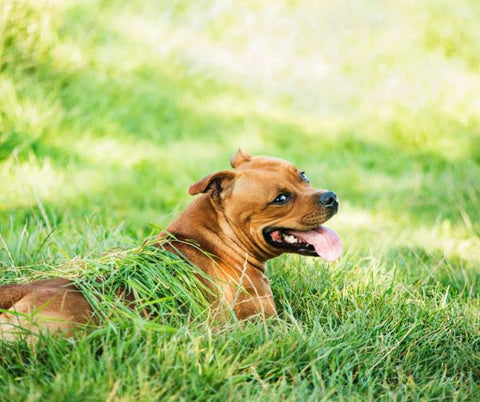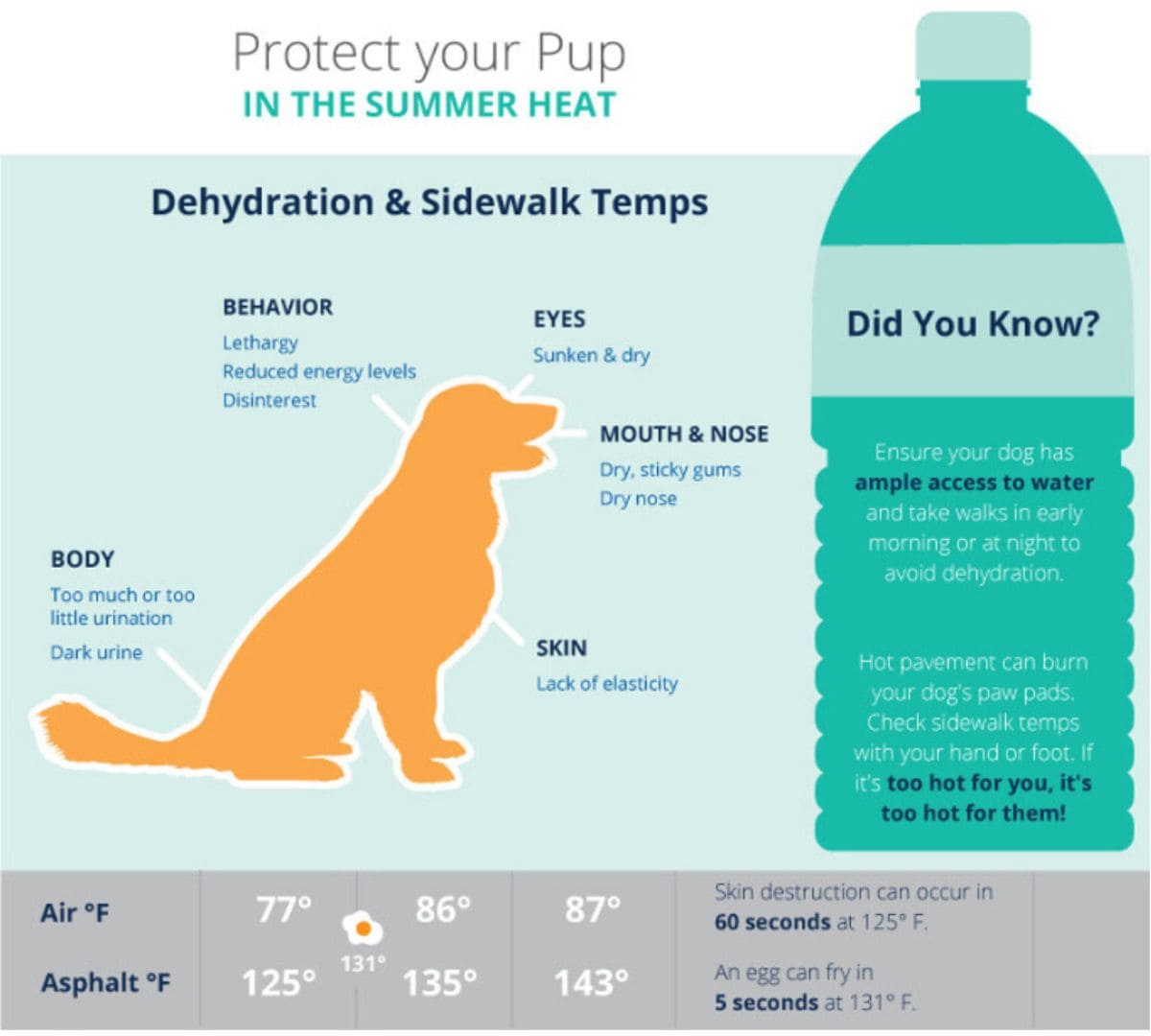
6 Tips to Avoid Dog Paw Burns from Hot Pavement
Avoid scorched paws with these tips!
Tip 1: Check the temp
Asphalt and other types of pavement, including concrete, can get too hot for your pup's paws at lower temperatures than you might think.
According to Dr. Jerry Klein of the American Kennel Club, at just 85 degrees Fahrenheit, unshaded pavement could pose a risk to your dog.
So check the weather before you and Rover head out for a walk!
By the way: small, short-legged, and flat-faced dogs are all more susceptible to heat stroke and distress because their bodies are closer to the hot ground. 🤯

Tip 2: Try it yourself
If you think the pavement is cool enough for your pup, try it with your own hand first.
If you can't press your palm on the pavement for 10 seconds without getting uncomfortable, it's too hot for your pup's paws!

Tip 3: Schedule walks near dawn or dusk
This should be an easy sell. Who wants to walk in the heat of the day anyway? Not your dog — and probably not you.
If your schedule allows for it, walk your dog in the early morning or evenings, when the sun hasn't been heating up the ground all day.

Tip 4: Walk on grass or in shade
Another common-sense tip that I had to share because too many people lack common sense.
Whenever possible, create walk routes on mostly grass or shaded pavement. If there's no toasty asphalt, your dog runs a lower risk of heat-related distress or damage.

Tip 5: Invest in dog shoes
Along with being hilarious, dog booties like these keep your pup's paws protected.
The AKC recommends choosing dog shoes with a snug fit that still allows paws room to breathe. Full-foot grips on the bottom and wrap-around closures will give your pup traction and make sure the shoes stay on.
Use them on hot pavement, and keep them on hand for snow, ice, and salted ground (all dog dangers!) in winter.

Tip 6: Proactively cool your pup
One way to help your pup stay cool? Ice, ice, baby.
You can apply ice packs to your dog's chest and under their front legs for rapid cooling (just don't hold them there for longer than 2-3 minutes at a time).

Other ways to chill out a hot dog:
- Pour cool water over their head and body
- Give them plenty of drinking water
- Go into the air conditioning at home or even in an already-cool car
- Offer a wading pool, by spraying the hose, or setting up a sprinkler
- Offer a cooling mat or vest (you can find these on Amazon starting around $30)
Know the signs of doggy dehydration
Burned paw pads aren't the only risks of hot walks. Dogs develop heat stress and heat stroke just like humans do.
Keep an eye out for the signs of heat stress below, and take your pup to the emergency vet immediately if you notice excess or thick saliva, dizziness or confusion, rectal bleeding, a refusal to drink water, seizures, or loss of consciousness.

Comment below with any more tips to keep your pup's paws safe and secure from the summer heat.

Leave a comment